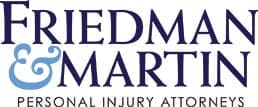We call them man’s best friend. They are often considered part of our families to the point we hang Christmas stockings with their names so Santa can bring Fido a toy. But the truth is–a dog is an animal. And some dogs are vicious and will attack people.
Dog bites, sadly, are more common than you think. They cause 1,000 U.S. citizens to seek emergency care treatment each day. Interestingly, in our experience, the vast majority of dog bite cases arise out of bites from Pit Bulls, German Shepherds, and Rottweilers. This is NOT to say that all of these types of dogs are vicious, only that in our experience, these breeds account for the majority of the bites. Some insurance policies now have restrictions on payment of claims arising out of a bite from a certain breed, and some apartment complexes have rules that govern what type of breed a tenant may own.
Georgia has two statutes that address the responsibility of dog owners. OCGA Section 51-2-7 covers vicious or dangerous animals which includes dogs – and injuries caused by them, which provides that any person who owns or keeps a vicious or dangerous animal of any kind that, by being careless in management or letting the animal go free, causes injury to another person who does not provoke his or her own injury, may be liable the injured person for damages. An example of this is a person who allows his dog to roam around the neighborhood or a person who walks his dog in public spaces without a leash despite a leash law. In both of these instances, the dog owner is not keeping the animal under control and is responsible for injuries should the dog attack someone.
The second statute, OCGA Section 51-2-6, addresses animals attacking livestock. It discusses the liability of owners or keepers of animals, including dogs. It states that if any animal, not on its owner or keeper’s premises, kills or injures any livestock, the owner or person in charge of the dog shall be liable for all costs sustained due to the attack.
In 2012, Governor Nathan Deal approved House Bill 685, the Responsible Dog Ownership Law, which added new laws addressing dangerous or vicious dogs. OCGA 4-8-1 to OCGA 4-8-33 addresses issues of classification of dangerous dogs, euthanasia of dangerous dogs per Judges’ orders, and the procedural requirements for determination of a dangerous dog. Code section OCGA 4-8-21 also defines what a “serious injury” dog bite is, and defines it as, “any physical injury that creates a substantial risk of death; results in death, broken or dislocated bones, lacerations requiring multiple sutures, or disfiguring avulsions; requires plastic surgery or admission to a hospital; or results in protracted impairment of health, including transmission of an infection or contagious disease, or impairment of the function of a bodily organ.”
The majority of cases our firm handles have involved extensive scarring, often on the face of young children, and on the arms and legs of adults. African Americans often suffer from development of keloid scars, which are not well suited to scar revision by a plastic surgeon.
If you know someone who has been injured by a dog, the owner or person taking care of the dog can be held responsible for the victim’s injuries. Most often, homeowner’s insurance policies cover these injuries. In Georgia, if we file a suit for you, we show the judge or jury the dog was vicious/dangerous and demonstrate the dog’s caretaker or owner should have known the dog was vicious or dangerous by showing previous acts of the animal’s viciousness before your attack occurred. Each situation is unique and requires looking at the circumstances and environment in which it occurred as well as the details surrounding the attack. If other people were at the location in which it occurred and witnessed the attack, this can help support your case.
Contact the law offices of Friedman and Martin to explore your options and how you can go about seeking damages after a dog bite. Call 912-232-8500 to schedule a free consultation.
